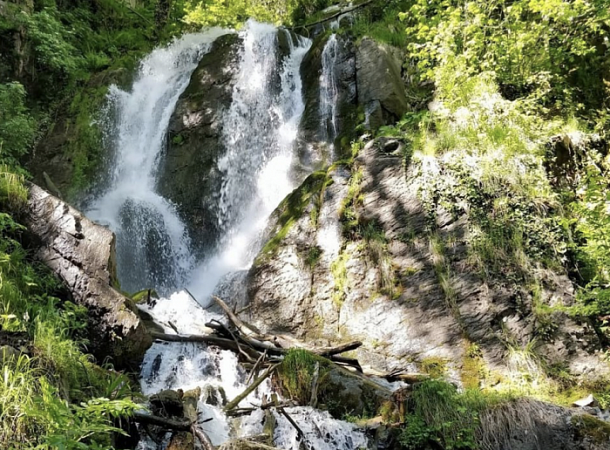Over the past weekend, rescue teams from the Russian Emergency Ministry successfully carried out several operations in Sochi.
On Saturday afternoon, rescuers were called to one of the beaches at Sirius Federal Territory. Reports indicated a swimmer being carried away by the current approximately 350 meters from the shore. Specialists arrived by boat, retrieved a 48-year-old man from Donetsk, and brought him safely back to the beach. No medical assistance was required.
Later that same day, the Krasnaya Polyana rescue unit searched for two female tourists who had gotten lost near the Keiva waterfall. Using geolocation, they located the women, aged 19 and 36, and escorted them out of the forest in an emergency service off-road vehicle.
During the night of August 9-10, the Khosta rescue unit searched for a father and son who had gone missing near Silver Lake. They were found in blackberry thickets and safely escorted to an emergency service vehicle before being transported back to the city. The residents of Saint Petersburg did not require medical attention.
Sochi
Sochi is a vibrant resort city on the Black Sea coast in southern Russia, known for its subtropical climate, beaches, and the nearby Caucasus Mountains. It gained global fame as the host of the 2014 Winter Olympics, which led to significant infrastructure development, including the Fisht Olympic Stadium. Historically, the region has been inhabited since ancient times and was a significant trade and cultural hub, later becoming a popular Soviet-era vacation destination.
Sirius Federal Territory
The **Sirius Federal Territory** is a relatively new administrative region in Russia, established in 2020 near Sochi. It was created to support the development of education, science, and innovation, building on the infrastructure of the 2014 Winter Olympics. The territory is named after **Sirius**, the brightest star in the night sky, symbolizing its role as a hub for talented youth and research.
Krasnaya Polyana
Krasnaya Polyana is a picturesque mountain village located in the Western Caucasus, near Sochi, Russia. Originally a small settlement, it gained prominence as a popular ski resort and was further developed as a key venue for the 2014 Winter Olympics. Today, it is known for its stunning alpine landscapes, modern ski infrastructure, and year-round outdoor activities.
Keiva waterfall
The Keiva Waterfall, located in the Murmansk region of Russia, is a scenic natural attraction known for its striking beauty, especially during the spring thaw when water flows powerfully over the rocky cliffs. The waterfall is part of the Keiva Ridge, an ancient geological formation, and has long been a landmark for local Sami people, who consider the area culturally significant. Today, it attracts hikers and nature enthusiasts for its rugged Arctic landscape and pristine surroundings.
Khosta
Khosta is a coastal resort area near Sochi, Russia, located along the Black Sea. It is known for its subtropical climate, beaches, and proximity to natural attractions like the Khosta River and the nearby Sochi National Park. Historically, the area was inhabited by indigenous Circassian peoples before becoming part of the Russian Empire in the 19th century and later developing into a popular Soviet-era vacation destination.
Silver Lake
Silver Lake is a vibrant neighborhood in Los Angeles, California, known for its artistic community, trendy shops, and scenic reservoir of the same name. Established in the early 20th century, it became a hub for musicians, filmmakers, and creatives, particularly in the mid-1900s. Today, it remains a culturally diverse area with a mix of historic architecture and modern attractions.
Saint Petersburg
Saint Petersburg, founded in 1703 by Tsar Peter the Great, is Russia’s second-largest city and a cultural hub renowned for its imperial architecture, canals, and artistic heritage. It served as the capital of the Russian Empire for over two centuries and is home to iconic landmarks like the Hermitage Museum, the Winter Palace, and the Church of the Savior on Spilled Blood. Often called the “Venice of the North,” the city reflects Russia’s European influences and remains a center of history, art, and literature.
Donetsk
Donetsk is a major industrial city in eastern Ukraine, founded in 1869 by Welsh businessman John Hughes, who established a steel plant and coal mines in the region. Historically known for its heavy industry, Donetsk became a focal point of conflict during the Russo-Ukrainian War, as pro-Russian separatists declared it the capital of the self-proclaimed Donetsk People’s Republic in 2014. The city has faced significant destruction and population displacement due to ongoing fighting.






